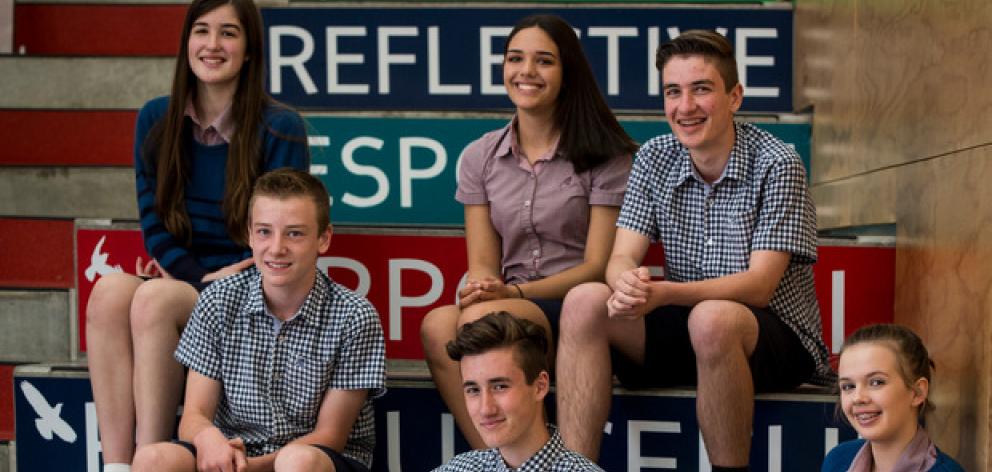
An Auckland high school is skipping NCEA Level 1 to reduce assessment stress for its students, giving the teenagers an extra year before facing exams.
Hobsonville Point Secondary School says the first year of the NCEA qualification is unnecessary as it doesn't lead to anywhere except further schooling.
The school, which opened last year, said it made the decision to switch to a two-year NCEA Level 2 programme after reviewing a national report on student wellbeing which found schools were over-assessing children, leading to anxiety, depression and eating disorders.
"Why would we do that to them?" said principal Maurie Abraham. "We found the kids weren't enjoying learning, and were instead ticking boxes. Our approach changes the focus to deep learning, rather than chasing credits."
The school will still offer a wide range of subjects, meaning, like elsewhere, students can work towards a variety of pathways including university, tech, apprenticeships or jobs.
Students will collect some NCEA Level 1 credits as they go, but only where assessments fit naturally with their "learning modules", rather than "assessment for assessment's sake". The goal is ensuring credits are quality -- meaning they're gained with excellence and are relevant to a student's future.
Deputy principal Claire Amos said parents were initially quite nervous, but the school had held information nights and the majority were now positive about the decision.
"There is still that old mental model of School C and Bursary. So some see the decision not to do Level 1 as abolishing School C," Ms Amos said.
"But we're not - the thing is, that once you have Level 2, you automatically get Level 1 anyway so they're not missing out."
A small number of families had decided to leave, which the school said it was comfortable with.
Year 11 student Yasmin Rawlinson, 16, was one of just a handful in her year level at the school this year, and said that so far it was working for her.
"If you can eliminate the extra stress, why wouldn't you? NCEA Level 1 isn't relevant."
Yasmin said at first her parents were a bit nervous but were on board now they could see it was working for her. She had 20 credits at NCEA Level 2 this year, and so far they were all achieved with excellence.
The report on wellbeing was published by the Education Review Office this year. It said students in all schools were experiencing a very assessment-driven curriculum and assessment anxiety.
"Very few schools were responding to this overload by reviewing and changing their curriculum and assessment practices," it said.
Its author, Chief Review Officer Iona Holsted, said the ERO was always pleased to see schools evaluating their circumstances and changing their practices to meet the needs of their students.
"We applaud Hobsonville Point Secondary School for putting their students' wellbeing and learning at the heart of their decision."
The Ministry of Education is also positive about Hobsonville Point's decision. The ministry's head of student achievement, Lisa Rodgers, said it was a "really good example" of a school using the NCEA system flexibly.
"If it suits the students, there is no need to study towards NCEA Level 1 before NCEA 2.
"It's an appropriate decision for a school to make, in consultation with its school community, as to whether this option would work for their students."
Professor Cindy Kiro, director of the Starpath Project - a University of Auckland research programme looking into the impact of socio-economic status on educational achievement - said Hobsonville Point's decision was something of a gamble, but if the school could prove its students were getting high-quality credits and being stretched, it could be a good model for others to follow.
"I would be cautious if it's going to put more pressure on kids, and it might be an awful big catch-up. I'll be interested in how they're going to do it."
The school will begin the programme next year.
- by Kirsty Johnston












